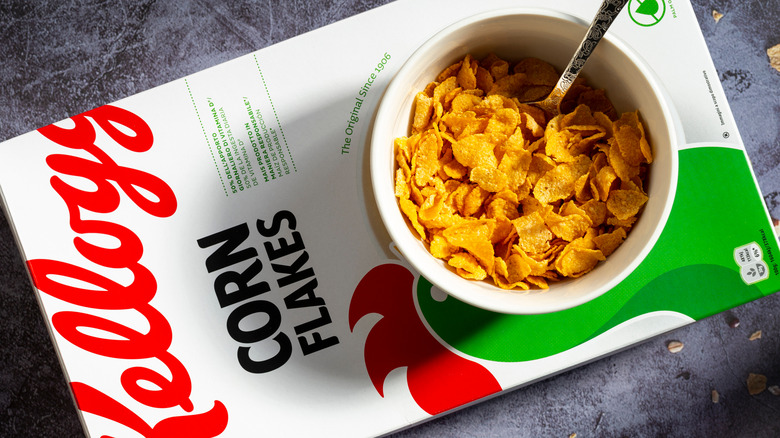Why The Kellogg's Founder Loved The Number 7
Lucky numbers. Not opening umbrellas indoors. Four-leaf clovers. Knocking on wood. Not walking under ladders. According to Statista, as much as 20% of Americans consider themselves "somewhat superstitious." It makes sense, then, that some superstitions should make their way into the kitchen.
Probably the best known example of food-related superstition is the belief that spilling salt means you'll have bad luck. Fortunately, you can quickly reverse this by throwing some salt over your left shoulder. Other well-known examples include tossing rice over newlyweds and using garlic to ward off vampires (via Bon Appetit).
In one Statista survey concerning the most common superstitions, a very fitting 77% of respondents said they believe seven is a lucky number. Whether or not you think there's something special about the number seven, you can at least admit there's something nice about it. In fact, even food giant Kellogg's has roots in an appreciation for lucky number seven.
The number 7 is everywhere
You could argue it's easy to find patterns when you set out to find them, but for some of us these patterns are extremely obvious. Take, for example, W.K. Kellogg, founder of the Kellogg's brand and lover of the number seven.
According to the Kellogg Archives, W.K. Kellogg had seven reasons for liking the number. First, the name Kellogg has seven letters. The founder's father — who happened to be the seventh child in his family — was born in 1807. The founder himself, also the seventh child, was born on the seventh day of the week, and the seventh day of the month. Finally, W.K. Kellogg went on to have seven grandsons. Pretty wild, right?
Ultimate Unexplained says W.K. Kellogg even went so far as to have his home incorporate the number seven as much as possible. Kellogg supposedly said, "If one seven is good, seven sevens ought to be better." We can't argue with that logic.

